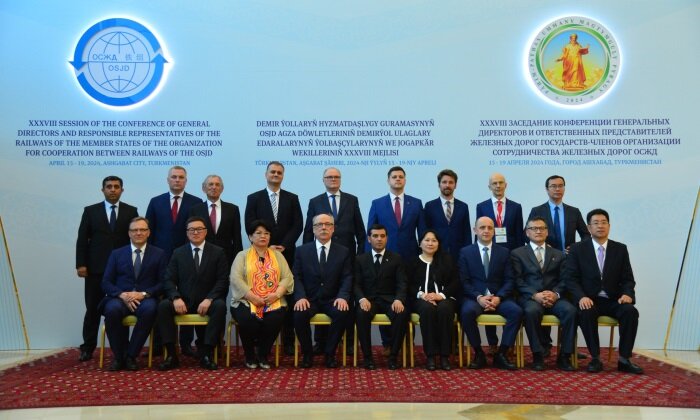 In his regular analytical review, an economic observer for Turkmenistan at CentralAsia.news Valentin Trapeznikov said Turkmenistan’s food industry showed excellent economic results in the first seven months of the year. They are a wonderful gift for all citizens of Turkmenistan for the upcoming main holiday of the country.
In his regular analytical review, an economic observer for Turkmenistan at CentralAsia.news Valentin Trapeznikov said Turkmenistan’s food industry showed excellent economic results in the first seven months of the year. They are a wonderful gift for all citizens of Turkmenistan for the upcoming main holiday of the country.
Key priorities
Achieving food independence is a key priority of the economic policy of modern Turkmenistan. The growth in agriculture and the food industry and the support for entrepreneurship are the fundamental basis for fulfilling this important task.
Certainly, the implementation of the agro-industrial sector development strategy is of the utmost importance. Creating an enabling environment for private producers through providing state support has led to the fact that domestic entrepreneurs have taken a leading position in production of most crops and livestock products.
The agro-industrial sector is the basic resource component of development of a number of industries, in particular the food industry that shows high economic results in the first seven months of 2022.
In January-July 2022, Turkmenistan increased the production of sausages by 19.7%, confectionery products by 18.0%, canned fruits and vegetables by 7.0% and bakery products by 6.0% compared to the previous year. It also increased the production of butter by 5.4%, whole milk products by 3.5% and macaroni products by 1.3%. The production of cereals, flour and beverages grew as well.
Introducing innovative methods
Domestic entrepreneurs make a significant contribution to the growth in food production. During the reporting period, the private sector achieved a higher rate of growth in food production than the national average compared to the previous year. In particular, sausages – 22.1%, confectionery – 19.7%, fish and other fishery products – 18.8%, whole milk products – 5.0%, butter –7.7%, bakery products – 7.3%, canned fruits and vegetables – 8.5% and cereals – 20.4%.
It should be noted that domestic food production is increasingly based on innovative and evidence-based methods and technologies.
The examples include the food products fortified with medicinal plants, chemical elements and vitamins. The Centre for Technology at the Academy of Sciences has provided scientific substantiation of the use of liquorice root extract in bread and bakery products.
Medicinal plants, fruits, berries and vitamins are added to various beverages, which are fortified with liquorice extract, ginseng, ginger, red berries, etc.
Turkmenistan occupies a leading position in the world in salt iodization in compliance with international standards. The country is working towards the fortification of flour with iron and folic acid and exploring the possibility for fortifying flour with zinc and Vitamin B-12.
The range of food products is continually expanding through the efforts of domestic businessmen, who occupy leading positions in the industry.
In particular, private enterprises are undertaking the production of new types of meat and chicken delicacies – sausages, smoked meat, carbonated meat, chicken rolls, semi-finished meat products, stewed beef, etc.
Strong growth in processing industry
The production and range of confectionery products, dairy products and ice cream, exported to foreign countries, is growing. Domestic producers are undertaking the production of baby food.
The new products on the domestic market include chocolate paste, 72% dark chocolate, cereals with milk and cereals with milk and fruits for babies.
The production of canned fish and fruits and vegetables is growing dynamically. Private enterprises produce the widest range of mayonnaises, sauces, ketchups, adjika and other types of seasonings and spices.
Entrepreneurs who grow oil seed crops – sunflower, olives, sesame, soybeans and rapeseed process them to produce olive, sunflower, sesame, soybean and rapeseed oils. They produce vegetable oil spread from cottonseed oil and mayonnaise from sunflower oil.
Private enterprises produce compound feed for poultry and cattle from meal obtained from vegetables and bran.
Thus, Turkmenistan’s food industry that consists of enterprises of various forms of ownership is taking an active part in implementing the national import substitution and export promotion programmes and contributing to achieving food independence by the country.





